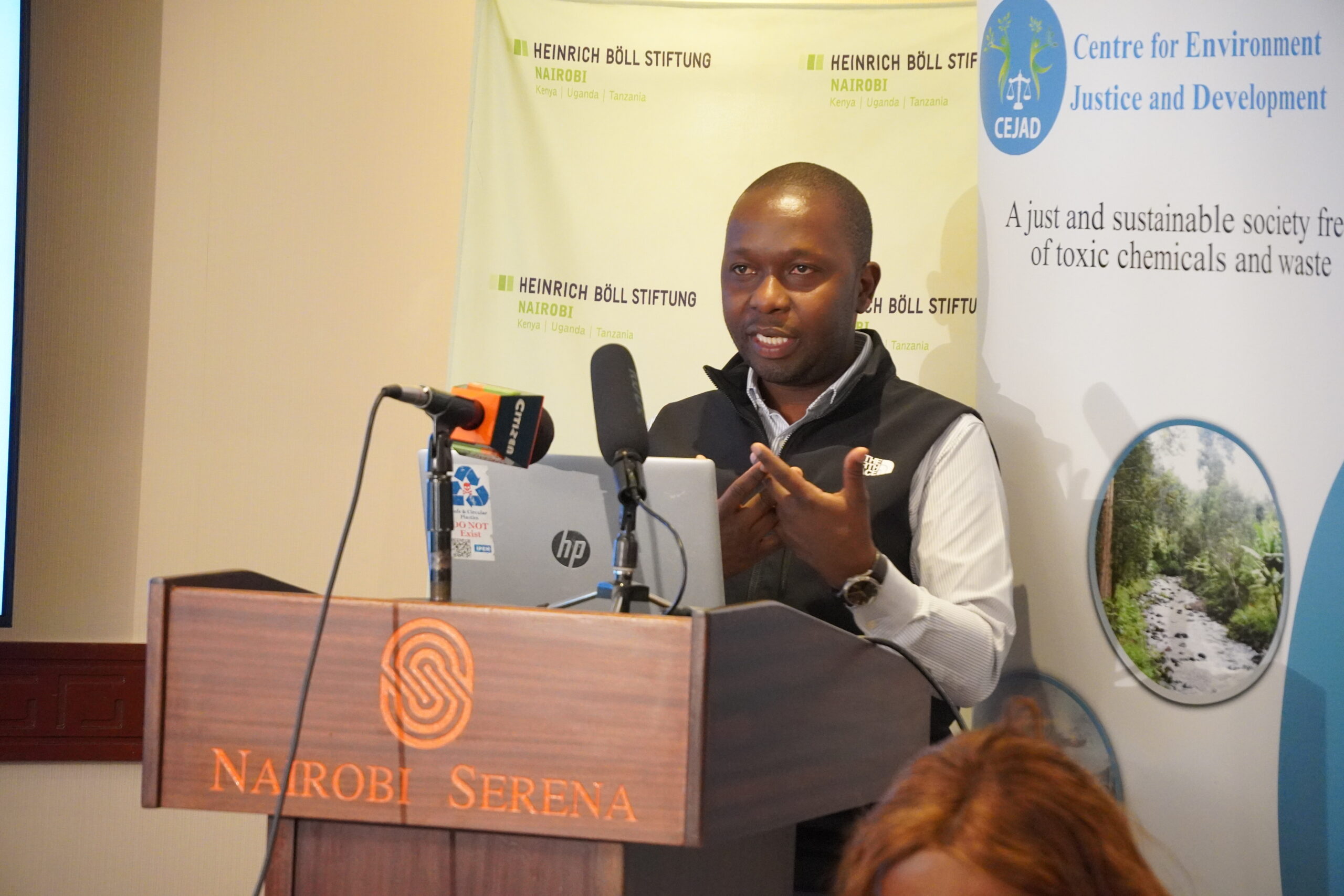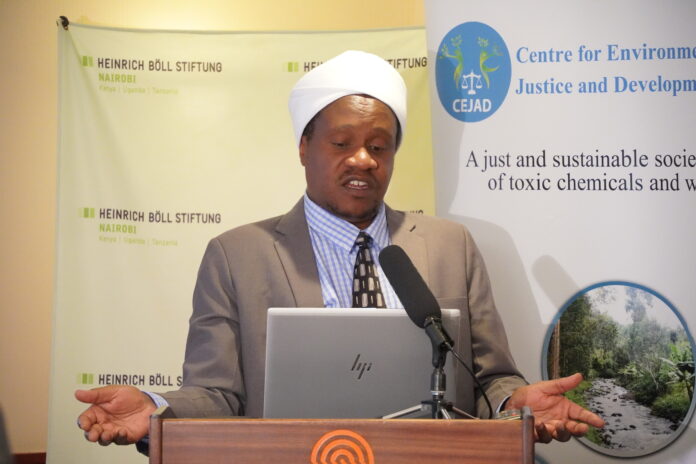|
Getting your Trinity Audio player ready...
|
By Seline Nyangere
Nairobi, Kenya: Plastic pollution is a serious threat to our planet. It endangers our health, food systems, economies, and overall environment. Individuals residing near dumpsites, including waste pickers, are particularly vulnerable to the health risks posed by plastic pollution.
The urgency of this crisis has prompted governments, civil society organizations, industry representatives, scientists, and experts to convene for the UNEP’S Intergovernmental Negotiating Committee-5 (INC-5). Their goal is to address the escalating plastic pollution crisis, with a particular focus on reducing plastic production.
During a media breakfast meeting on INC process for the Global Plastic Treaty in Nairobi, Griffin Ochieng, the programs coordinator and Executive director at Center for Environment Justice and Development (CEJAD) said that, in the INC-5 they are calling for sustainable production and reduction of plastics which is basically the polymers.
“Our demand for essential elements focuses on upstream measures, meaning looking at production particularly additives some of which are hazardous chemicals which are added to plastics and one of the elements is the reduction of polymers,” said Ochieng.

Apart from the reduction of polymers, in line with the UN Environment Assembly’s (UNEA) resolution on March 2022 to create the international legally binding instrument on plastic pollution and address its pollution comprehensively from production, consumption to waste management, Ochieng stated that there are other two crucial elements that they want addressed and one of them being health.
“The health aspect is one crucial element, since there are health concerns around the chemical additives we want the treaty to regulate by eliminating toxic chemicals in the production of plastics, so there has to be provisions on the list of harmful chemicals that need to be faced out immediately. We are also calling for transparency and traceability. What is it in those plastics, which essentials are allowed to be used in some products ? There is information or principle of right to know for every producer and consumer,” called Ochieng.
There are health effects related to plastic exposure. Plastics contain chemicals such as bisphenol A (BPA), phthalates and polyvinyl chloride (PVC), which are chemical compounds used to make plastics and epoxy resins.
Solomon Njoroge, chairman of Nairobi Recyclable Waste Association revealed that waste pickers in Dandora, Nairobi are facing health challenges at the dumpsite associated with wastes like plastic and therefore it is the mandate of plastic manufacturers to adopt Extended Producer Responsibility (EPR).
“We have different illnesses in the dumpsite caused by toxic plastics in the landfills and hazardous waste. Some waste pickers work without protective gear such as gloves, boots, overalls and the best solution for this is for plastic manufacturers to ensure they take care of their plastic wastes,” said Njoroge
Njoroge revealed that, as an association they can only offer first aid to waste collectors facing health risk which is not effective, as some require medical attention due to this plastic exposure and at the same time most of them lack medical cover due to their poverty level.
“In our association we are only skilled on first aid, we have first aid toolkit in our office, we only do what we can to make sure that we’ve done whatever we can with any person involved in any kind of an accident in the site and then we take them to the nearest hospital or clinic but because of the dumpsite poverty, most people fall sick in as much as they are still working, they remain silent because they are torn between their health and their provision role in their families,” revealed Njoroge.
On 4th November the National Environment Management Authority (NEMA) launched new directives aimed at enhancing Kenya’s efforts to combat plastic pollution, this directives comes as Kenya prepares for INC-5. NEMA Director, Dr. Ayub Macharia, has asked manufacturers to adhere to the regulations as directed.
“Plastics will continue to be in use so long as those causing pollution will be removed, and through continuous research and innovation we will be able to determine the ones causing pollution. The EPR law gazetted on 4th November gave companies 6 months to register themselves with NEMA and put in place those EPR strategies, so they should start buying those items in the next 6 months,” said Dr. Macharia.
The Fifth session of Intergovernmental Negotiation Committee on plastic pollution will take place from November 25 to December 1, 2024 at Busan Exhibition and Convention Centre in Busan, South Korea.














